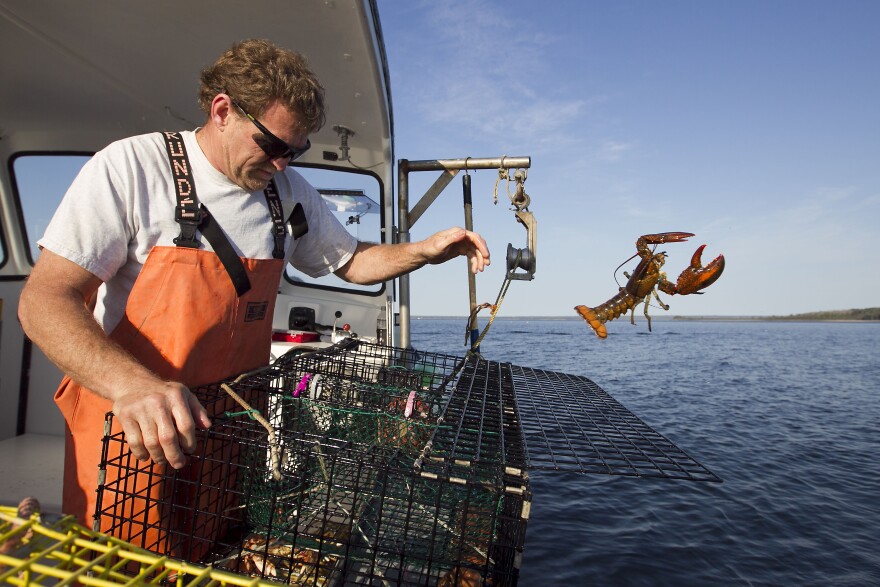Maine's Congressional delegation has secured $14 million in federal funds to help lobstermen buy gear that complies with new rules that aim to protect endangered North Atlantic right whales from entanglements.
And they've budgeted another $3 million for research and education about the fishery and whale migration patterns.
New federal rules that take effect in May will require markings on lobstermen's trap lines, with weak points woven into the rope to improve the chance that a whale can break through without becoming entangled.
The farther boats venture off shore and into potential whale migration paths, the more comprehensive the gear changes required. Industry advocates have estimated gear conversion costs could be three times the federal government's $14 million allotment.
Virginia Olsen, the political director for the Maine Lobstering Union, says supply-chain problems and inflation could drive the costs even higher. And, she says, the industry remains convinced that the rules go much farther than what's really needed to protect the whales.
"A lot of the industry is really struggling with where we need to do the conversions, because we want to be able to protect right whales, but we want to be able to protect right whales where they are," Olsen says.
That's why she's applauding a federal allotment of another $2.3 million for research and monitoring of whale migration patterns, and of the plankton that they forage for. Another $750,000 is going to a joint industry-state program to help coastal communities to adapt to what could be an era of ever-more regulation.
Maine's Legislature, meanwhile, is considering legislation that could send tens of millions of dollars more the lobstermen's way.


